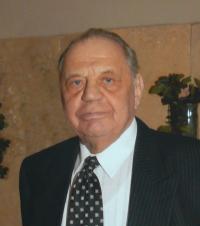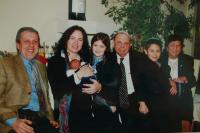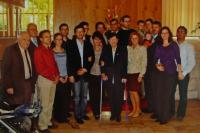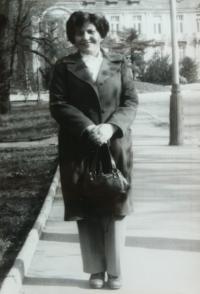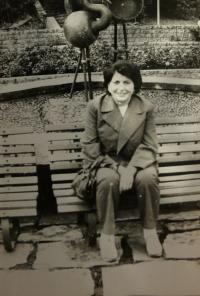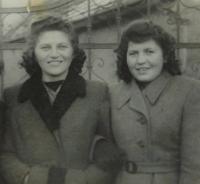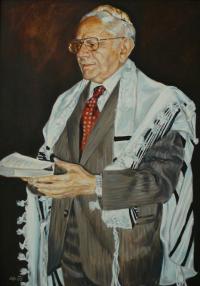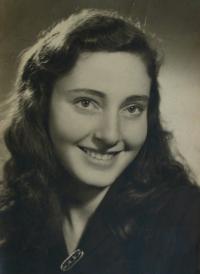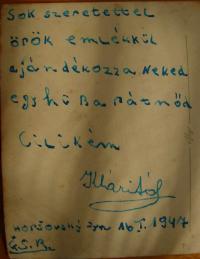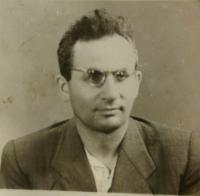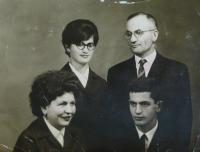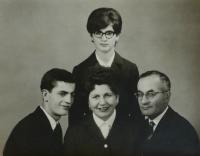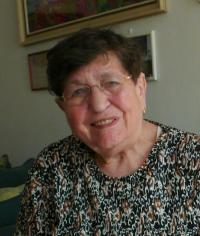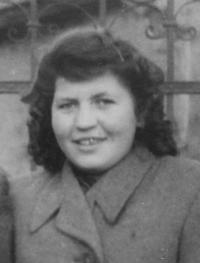„A Jew shouldn‘t lie, but instead behave like a Jew should behave.“

Stáhnout obrázek
Cecilia Kleinová, née Rothmannová, was born in October 1928 in Porúbka, a small village in the Sobranka district of Eastern Slovakia. Her parents Áron and Fany (née Weissová) managed a small estate and the local village shop. The family honoured Jewish traditions. Cecilia had six siblings all in all. Apart from the oldest, her step-sister Růžena from her father‘s first marriage, they were all boys: Alexander, Samuel Viliam, Emil, Adolf and Ignác. The persecution of Jews during World War II claimed the lives of both her parents, of her brothers Samuel Viliam, Adolf and that of the youngest Ignác. The region the family lived in became Hungarian territory following Czechoslovakia‘s collapse. The situation was not good for Jews, but the Rothmann family was allowed to stay in their own house for quite some time - until Passover in 1944, when they were suddenly deported, being sent through the Uzhhorod brickyard ghetto to the concentration camp in Auschwitz-Birkenau. Her mother and her two youngest brothers were sent „to the wrong side“ straight away during the first selection. Cecilia lived in the so-called „gipsy camp“ of Auschwitz-Birkenau, and she was greatly helped by her sister Růžena, who supported her with food. After half a year in Auschwitz, she and her sister were transferred to the labour camp in Zittau, Saxony, where they arrived on the 1st of November 1944. Cecilia worked in a factory repairing military air planes damaged during combat, her sister Růžena worked in quality control. After their liberation in May 1945, the two of them returned to their native Porúbka. Cecilia later moved to Velké Kapušany to start a family - she lived there until 1974, when she moved to Teplice in Bohemia. She wedded a second time, marrying Chaim Klein. She was a long-standing member of the local Jewish religious community. She died on October, 15th, 2014.
